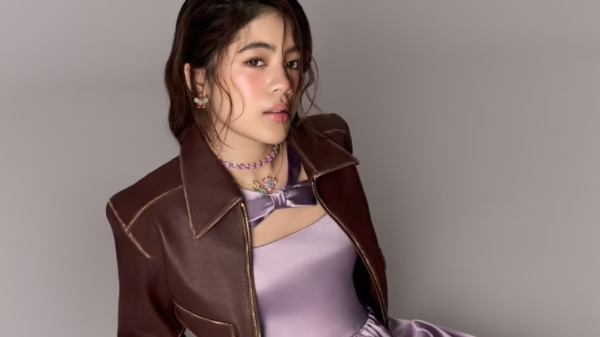AI-Powered Personal Styling: Redefining Fashion for the Digital Generation
In 2025, AI-powered personal styling has emerged as a transformative trend in the fashion industry, especially among younger consumers like Gen Z. With the rise of tools like ChatGPT, virtual fitting platforms, and intelligent wardrobe apps, shoppers are seeking guidance from artificial intelligence to curate their looks. This digital transformation offers new possibilities for personalization, convenience, and inclusivity—reshaping how consumers engage with fashion and how brands serve them.
The Rise of AI in Fashion Advice
Traditionally, fashion advice came from stylists, influencers, or peers. Today, AI tools are stepping into this role, offering on-demand guidance based on individual preferences, body types, and occasions. Platforms powered by ChatGPT and similar models help users build capsule wardrobes, suggest outfit combinations, and even recommend clothing based on the weather or event type. This shift reflects Gen Z’s preference for immediacy, tech integration, and hyper-personalized experiences.
Gen Z Leads the Digital Styling Movement
Gen Z’s digital-first mindset makes them the primary adopters of AI styling tools. This generation values self-expression and individuality but also craves convenience and real-time feedback. Whether they’re styling for a festival, interview, or night out, Gen Z users increasingly trust AI to deliver relevant and stylish suggestions that match their evolving tastes and values.
Capsule Wardrobes Go High-Tech
One of the most requested features in AI styling apps is help with building a capsule wardrobe—a minimal, versatile collection of clothing. AI tools analyze existing wardrobe items, suggest complementary pieces, and eliminate redundancy. This not only promotes more sustainable fashion habits but also streamlines decision-making, reducing daily outfit stress and encouraging mindful consumption.
Virtual Try-Ons and Body Data Integration
AI-powered styling tools now incorporate virtual try-on technology and body-scanning features, allowing users to visualize how clothes will fit and look on their unique body types. This innovation addresses sizing issues, reduces returns, and boosts consumer confidence. Entrepreneurs are building platforms that combine AI recommendations with AR/VR capabilities to provide a true-to-life digital fitting room experience.
Hyper-Personalization Drives Customer Engagement
Fashion brands that integrate AI styling tools into their e-commerce platforms benefit from hyper-personalized customer journeys. These tools consider browsing history, purchase patterns, and user feedback to tailor outfit suggestions and product recommendations. This not only increases engagement but also drives higher conversion rates and customer satisfaction.
AI Stylists as 24/7 Fashion Assistants
AI personal stylists operate around the clock, offering advice anytime, anywhere. Whether it’s a chatbot embedded in a fashion app or a browser extension suggesting what to wear based on calendar events, these tools serve as digital companions for fashion planning, replacing the need for in-person consultation and expanding accessibility.
Influencer Integration and AI Co-Creation
Forward-thinking influencers and fashion brands are leveraging AI to co-create personalized style guides for their followers. These guides, powered by AI insights, allow fans to emulate influencer aesthetics while receiving tailored outfit recommendations. This fusion of influencer marketing and AI amplifies brand loyalty and community building.
Retail Innovation Through AI Styling Kiosks
Brick-and-mortar retailers are also adopting AI-powered styling through in-store kiosks or smart mirrors. These systems analyze customer preferences, offer real-time suggestions, and even sync with shoppers’ online profiles. This seamless integration of physical and digital shopping enhances the omnichannel retail experience.
Sustainability Meets Smart Styling
AI tools help promote sustainable fashion by encouraging users to reuse, restyle, and rethink their wardrobes. Apps can suggest new combinations using existing pieces, reducing the urge to overconsume. Brands focused on sustainability are integrating AI to encourage conscious shopping behaviors, resonating with eco-aware consumers.
Barriers to Adoption and Ethical Considerations
While AI-powered personal styling is growing rapidly, challenges remain. Concerns around data privacy, algorithmic bias, and user trust must be addressed. Developers need to ensure that AI styling suggestions are inclusive, diverse, and respectful of cultural sensitivities. Transparent data use and continuous algorithm training are essential for ethical adoption.
Opportunities for Emerging Fashion Entrepreneurs
For entrepreneurs, AI styling tools represent a low-barrier entry point into the fashion tech space. White-label AI solutions, open-source models, and plug-and-play APIs allow startups to create customized styling apps, subscription services, or virtual boutiques tailored to niche audiences—from maternity fashion to adaptive wear.
The Social Commerce Edge
AI styling tools are also fueling social commerce by integrating with platforms like Instagram, TikTok, and Pinterest. Users can receive AI-powered outfit ideas based on what influencers wear, purchase items directly, and share their own looks for feedback. This creates a feedback loop of inspiration, purchase, and personalization that enhances community-driven shopping.
The Future of AI in Personal Styling
Looking ahead, AI styling tools are expected to evolve further through voice assistants, holographic stylists, and integration with smart closets. These innovations will make fashion guidance even more intuitive, conversational, and accessible. The convergence of fashion, tech, and personalization is shaping a new era of on-demand, democratized styling.
Conclusion: Personalized Fashion at Scale
AI-powered personal styling is redefining how people interact with fashion. It democratizes access to style advice, empowers individual expression, and enhances customer experiences at every touchpoint. For fashion entrepreneurs, this trend presents vast opportunities to innovate, connect, and lead in a digital-first, style-conscious world. As AI continues to evolve, it’s not just changing what we wear—but how we choose to wear it.


































